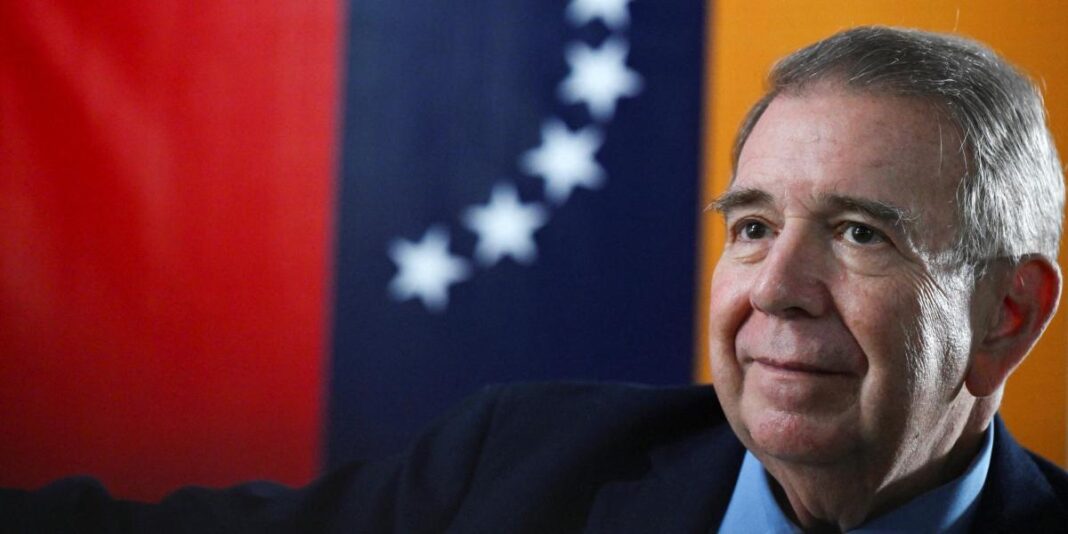BTN News: The European Parliament is set to vote on a crucial resolution tomorrow, with the potential to recognize Edmundo González, a Venezuelan opposition leader, as the legitimate president of Venezuela. The resolution, spearheaded by the European People’s Party (EPP), along with ultraconservative and far-right groups, could reshape the EU’s stance on Venezuela’s political crisis. The vote follows a week of negotiations in Strasbourg, France, and reflects a shift in European politics regarding the Venezuelan situation.
This vote comes after a previously similar attempt to recognize another opposition leader, Juan Guaidó, in 2019, which ultimately did not achieve its goals. The new push to endorse González faces a more divided European Parliament, with significant opposition from left-leaning groups.
A Divided Parliament on Venezuela’s Future
Despite considerable backing from the right-wing factions, the resolution has exposed sharp divisions within the European Parliament. The EPP, along with the far-right group Patriotas por Europa and the Conservatives and Reformists (which includes Italian Prime Minister Giorgia Meloni’s party, Fratelli d’Italia), has rallied significant support for recognizing González as president. Together, these groups hold 375 seats out of 720, giving them a chance to pass the resolution with a simple majority.
However, left-leaning factions, including social democrats, liberals, greens, and the leftist bloc, are resisting the resolution. While they largely agree on denouncing Venezuelan President Nicolás Maduro’s regime for human rights violations and arbitrary detentions, they remain skeptical about recognizing González. Some argue that the European Union (EU) should not prematurely endorse him due to a lack of international consensus, pointing out that only Panama and Ecuador have acknowledged him.
Why the Opposition Resists the Resolution
Left-wing parties are hesitant to back González for several reasons. Key among them is the lack of widespread international recognition. European countries have not formally recognized González, and many believe the election results that declared him the winner in July 2024 were not transparent. As a senior socialist source explained, these groups agree on 95% of the text condemning Maduro’s authoritarian regime, but they see the recognition of González as a “red line” they cannot cross.
Additionally, left-leaning politicians point to the previous recognition of Juan Guaidó in 2019. Despite initial widespread support, Guaidó failed to replace Maduro, and the strategy is now viewed as having complicated EU-Latin American relations. Critics of the current resolution warn that a similar approach could further strain diplomatic ties between the EU and Latin America.
The Stakes for EU-Venezuela Relations
Should the European Parliament vote in favor of recognizing Edmundo González, the move would be largely symbolic. However, it could pressure the EU and its member states to follow suit. The resolution calls on the EU to ensure González assumes the presidency by January 2025 and urges the reintroduction of sanctions against key figures in Venezuela’s National Electoral Council. Furthermore, it advocates for an international arrest warrant against Nicolás Maduro for alleged crimes against humanity.
While the final say on EU foreign policy lies with the European Council, which includes the bloc’s foreign ministers, the European Parliament’s vote is seen as a potential catalyst for future actions. A “yes” vote could encourage greater EU involvement in Venezuela’s political crisis and reshape the bloc’s diplomatic approach to the region.
What’s Next for the Vote?
With the vote expected to take place at midday tomorrow, the political landscape within the European Parliament remains fluid. Both the social democrats and liberals are expected to propose amendments. However, internal disagreements over the precise wording mean their amendments may not significantly alter the outcome.
The liberals are prepared to recognize González as the winner of the 2024 elections, while the social democrats are more cautious, insisting that the election’s legitimacy be questioned. They demand that the election results be fully transparent and that the Venezuelan people’s will be respected before any formal recognition of González.
The outcome of tomorrow’s vote will signal a key moment in EU-Venezuelan relations, potentially resetting the EU’s approach to Venezuela’s ongoing political turmoil.
Key Points to Watch in Tomorrow’s Vote
- Political Factions: The vote highlights the growing influence of far-right and conservative groups in the European Parliament, as they align to support González.
- Left-Wing Resistance: Social democrats, greens, and other left-leaning groups are likely to block full recognition, citing concerns over legitimacy and past failures.
- Impact on EU-Latin America Relations: A decision to recognize González could worsen EU relations with Latin American countries that still support dialogue with Maduro’s regime.
- Symbolic but Important: While largely symbolic, this vote could set the tone for future EU policy towards Venezuela.
Conclusion: A New Chapter for Venezuela or a Repeat of 2019?
The European Parliament’s upcoming vote on recognizing Edmundo González could open a new chapter in Venezuela’s political crisis, or it could repeat the same missteps seen with Juan Guaidó. With strong backing from right-wing factions and skepticism from the left, the decision will undoubtedly shape the EU’s foreign policy towards Venezuela for years to come. Whether the EU’s stance helps to bring political stability or deepens the divide remains to be seen.
As the vote approaches, all eyes will be on Strasbourg, where the European Parliament faces a difficult decision on Venezuela’s future and its role in addressing the ongoing crisis.


